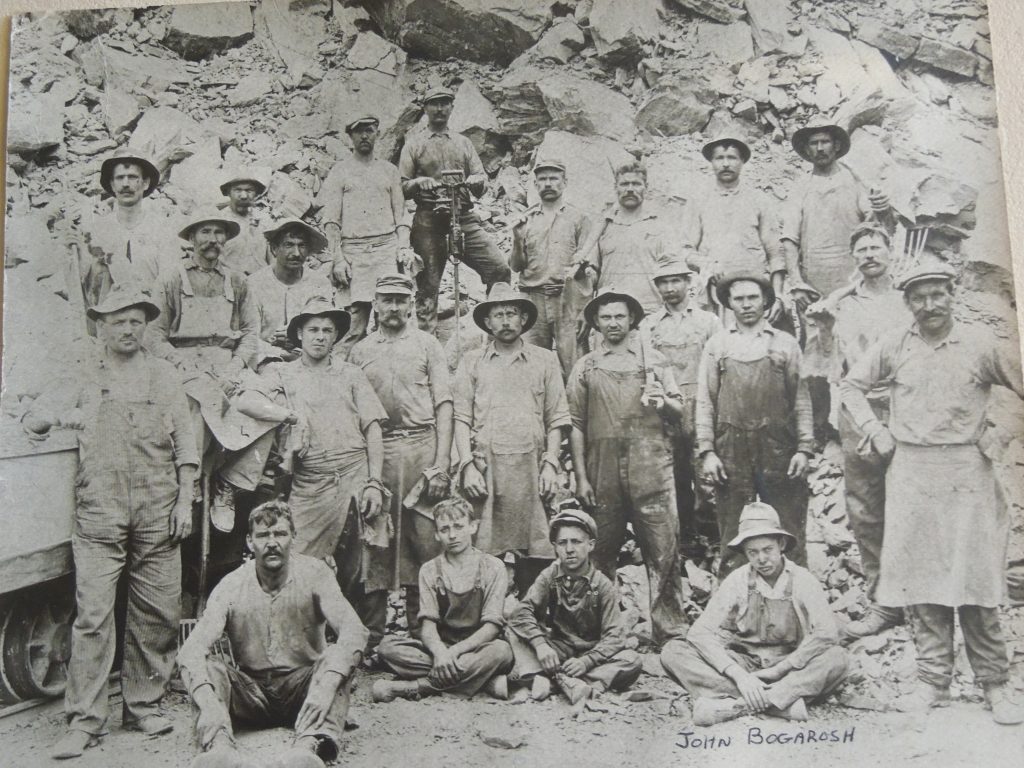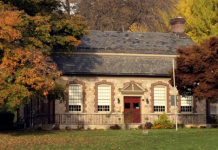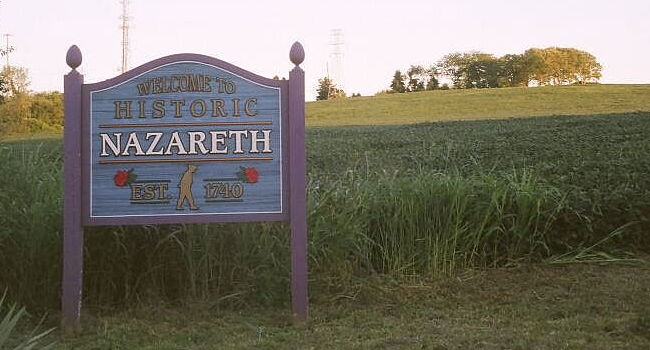
Quarry men, Penn Dixie. Photo courtesy of Larry Oberly.
Today I continue my visit with Mr. George Maureka on Penn Street in Bath. The year is 2001.
At age 15, George started to work for a Bath plumber for eight dollars a week, allowing him to learn the plumbing trade. World War II interrupted his plumbing career; he would serve with honor in General George Patton’s Third Army.
Returning home, his father wanted him to work at the Penn Dixie Cement Company like the rest of the family. Area cement plants needed employees and dozens of men and women were hired daily at local plants.
He recalled, “I started cleaning fly ash out of the flues for $1.30 an hour, the most money I ever saw. I liked working there and was treated well.”
The year 1946 was a big year for Penn Dixie employees; the company started to sell their company homes to employees. George’s father was thrilled.
The company would enable them to be homeowners. Mr. Maureka purchased the home for $1,000; two-story homes sold for $1,500. I visited the home in 2001. The homes are solid concrete structures. I was amazed by the sturdy construction.
The cellar contains large concrete pillars and concrete beams support the main floor. The living room area rests on a concrete floor. The original home had a flat roof but replaced it with a traditional roof.
George was a registered plumber. A heating contractor looked at the home and was frightened by the mass of concrete. To install a central heating system, an air compressor was used to drill holes through the walls and floors; it was a dusty and noisy affair.
George did practically all of the work and has a home that will never be duplicated. George had a long career at Penn Dixie. He spent his last years at the plant maintaining the plant office “whitehouse” which is still standing and being utilized by Lehigh Hanson.
In his kitchen the wall displays his 714 Armored Battalion, 12th
Armored Division Hell Cats certificates. Mr. George “Pipe Wrench” Maureka served his country in World War II and was a dedicated cement worker.
On leaving his home, I walked to the end of Penn Street, a dead end. In a few steps I was at the fence surrounding the quarry. Peering into the body of water, one can only visualize all the activity that took place on the site.
The last Penn Dixie plant #4 closed in 1979, closing a chapter of local cement history.
In two weeks we will be on the farm in 1930 with my father, Anthony Pany.








